Top Ten Performances of 2022

Javier Arrey and Mary Feminear in Mozart’s Le nozze di Figaro at Maryland Lyric Opera. Photo: Julian Thomas
1. Mozart: Le Nozze di Figaro. Maryland Lyric Opera.
Among a generally outstanding year of concert performances, Maryland Lyric Opera excelled in its return to staged opera in this laudable production. The cast of the company’s Marriage of Figaro was uniformly excellent, especially the tragically beautiful Countess of Mary Feminear and the boyish Cherubino of astonishing mezzo-soprano Allegra De Vita. Best of all, handsome costumes and sets proved that a staging that hews close to the libretto and original setting can triumph.
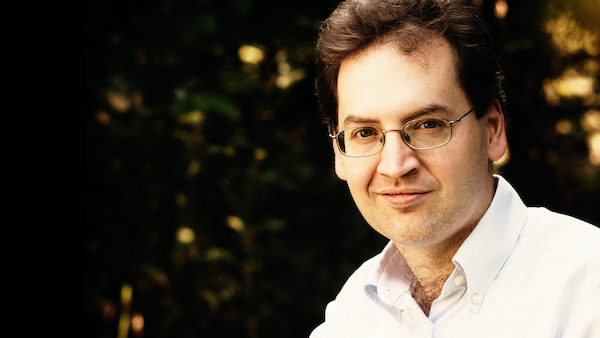
Dénes Várjon. Photo: Balazs Borocz
2. Music of Bach and Schumann. Dénes Várjon. Candlelight Concert Society.
The Hungarian pianist had to cancel his March recital after receiving a positive coronavirus test. Rescheduled for June, the program may have seemed staid in its choices, but each piece offered new vistas to the listener. Lavish ornamentation enlivened Bach’s English Suite No. 2, and the reinstatement of Schumann’s original ending to his Fantasie in C Major was a major surprise. Even the Bartók encore was entirely unexpected.
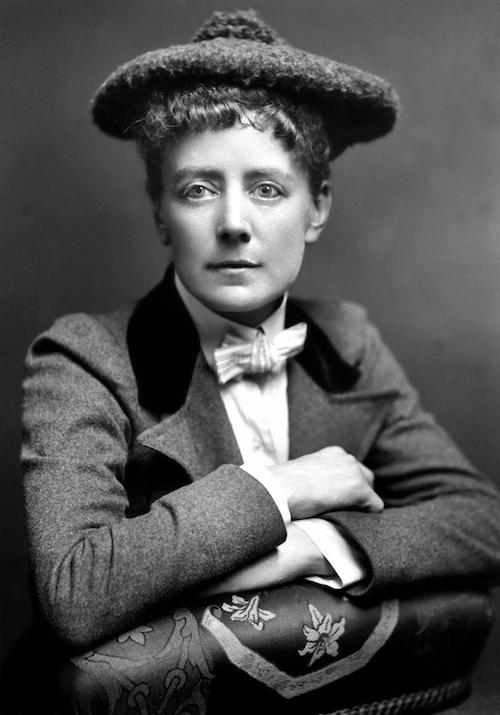
Dame Ethel Smyth
3. Ethel Smyth: Mass in D major. Cathedral Choral Society.
This year truly marked the end of the recent spate of coronavirus-devastated seasons, as some canceled programs finally saw the light of day. The Cathedral Choral Society’s paean to the centenary of women’s suffrage in the United States was delayed by two years. Although some world premieres composed by women disappointed, Ethel Smyth’s soaring 1893 Mass in D major received the first local performance of three of its movements, crowned by soprano Amanda Palmeiro in a plush “Benedictus.”
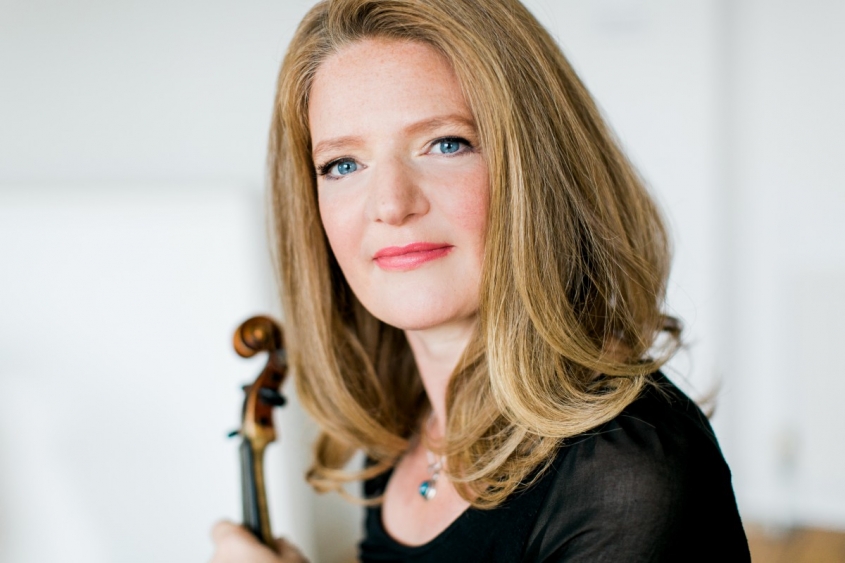
Rachel Podger. Photo: Theresa Pewal
4. Rachel Podger. Library of Congress.
The outstanding British violinist performed solo violin works by the generation of composers prior to Bach, in her first local appearance in over a decade. By turns playful and rapturous, this lone musician held the listener’s attention in reverent silence, a rare thing as audiences have come back from the coronavirus shutdowns with some bad habits. The evening ended with Podger playing a Bach partita on the 1654 “Brookings” Amati from the Library’s collection, recently retrofitted to its baroque state.
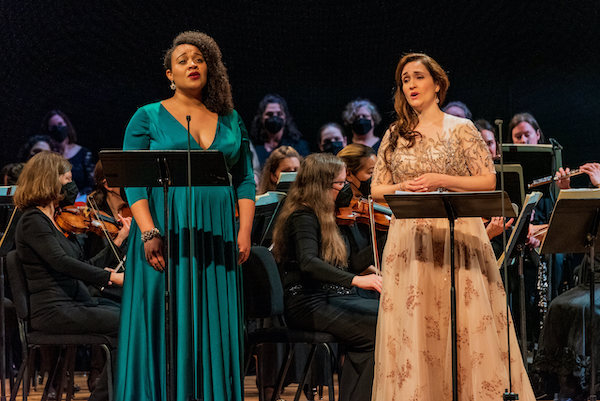
Taylor Raven and Erin Morley in Delibes’ Lakmé, presented by Washington Concert Opera. Photo: Caitlin Oldham
5. Delibes: Lakmé. Washington Concert Opera.
Washingtonians owe many an operatic rarity to Washington Concert Opera. In a mesmerizing star turn in the title role, Erin Morley’s soprano shimmered with radiance and delicacy. In the character’s big showpiece, “L’Air des Clochettes” (“Bell Song”) in Act II, Morley interpolated a stratospheric G sharp at the end of the first verse, an ornament first added by Mado Robin and later taken only by a brave few like Natalie Dessay, and then ended on a long, exquisitely sung high E.
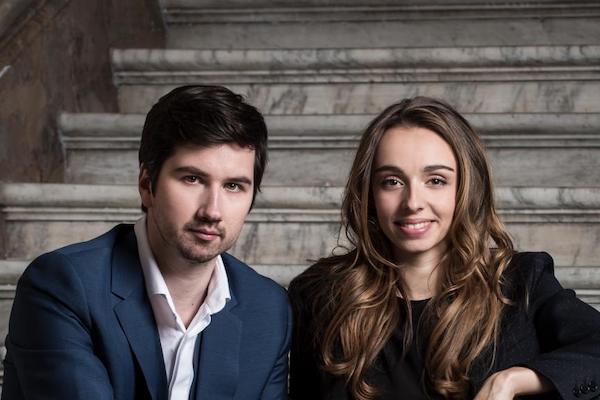
Lutenist Thomas Dunford and soprano Lea Desandre.
6. Jupiter with Lea Desandre. Phillips Collection.
The early music ensemble known as Jupiter, founded in 2018 by lutenist Thomas Dunford, made its maiden appearance in the Washington area this year. The group’s stupendous all-Vivaldi concert at the Phillips Collection starred mezzo-soprano Lea Desandre in vocal showpieces, as well as the group’s cellist, Bruno Philippe, in a blazing concerto. The program drew from two of the group’s recent recordings, including one on an Amazon theme.
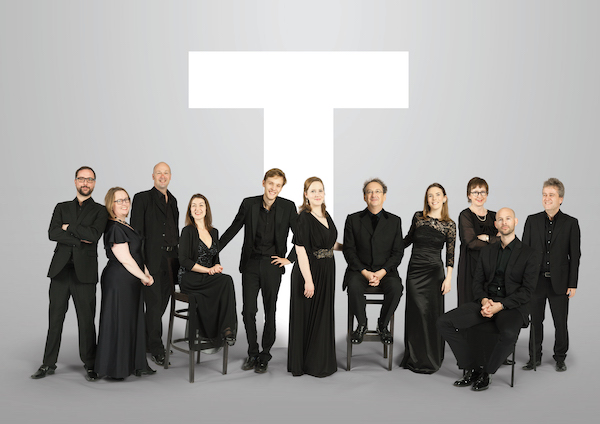
The Tallis Scholars. Photo: NIck Rutter
7. David Lang: Sun-Centered, Tallis Scholars.
The Tallis Scholars recorded Antoine Brumel’s Missa Et ecce terrae motus in 1991. The superlative British choir performed this fascinating piece, with one singer on each of the twelve vocal parts, at a superb concert in April at the Kennedy Center. The movements were interspersed with Sun-Centered, a new work by David Lang “inspired by Galileo’s pursuit of truth and the relentless nature of human curiosity.” With texts based on Galileo, Francis Bacon, Psalm 19 (about the sun’s movements), and Plato, this piece was absolutely gripping, capped by an encore of William Byrd’s Easter motet Terra tremuit.

Jean Rondeau
8. Bach: Goldberg Variations. Jean Rondeau. Capriccio Baroque.
The best thing about a performance of an ultra-familiar work is if it surprises you. The French harpsichordist, who has made two recordings of this Bach masterpiece, surprised over and over again in this dynamic live performance. The small audience received by the presenter made the experience even more intimate, from an improvised intonatio as prelude, through some extravagantly ornamented repeats, to a stripped-down return of the opening Aria.
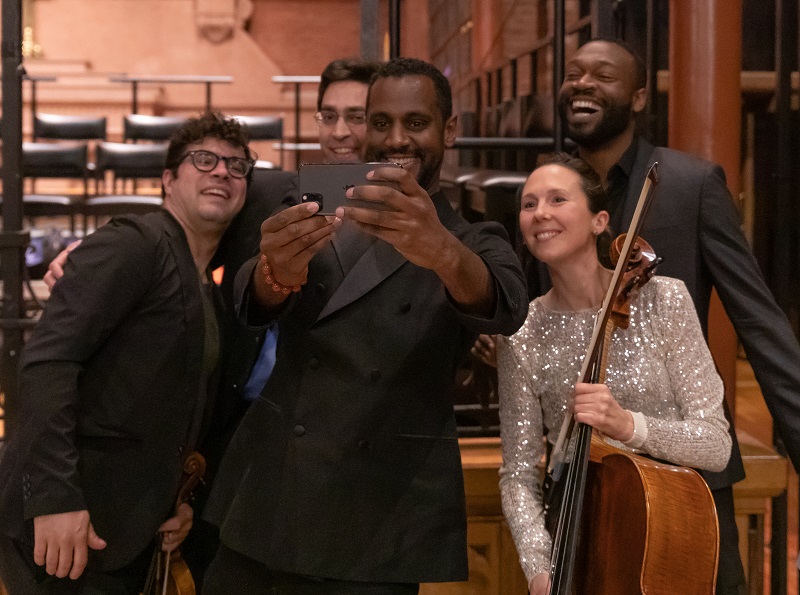
Chiarina Chamber Players and baritone Carl DuPont with composer Carlos Simon (center). Photo: Harsh Atit
9. Simon: The Best Cuisine. Chiarina Chamber Players.
The Chiarina Chamber Players continued their sparkling rise on Capitol Hill with another strong year of new and unexpected music. This concert featured the familiar, Dvořák’s “Dumky” Piano Trio, along with rarities sung by baritone Carl DuPont. Nightsongs, a song cycle from 1961 by the Ohio-born composer H. Leslie Adams, was followed by the world premiere of a quirky new cycle by Carlos Simon.
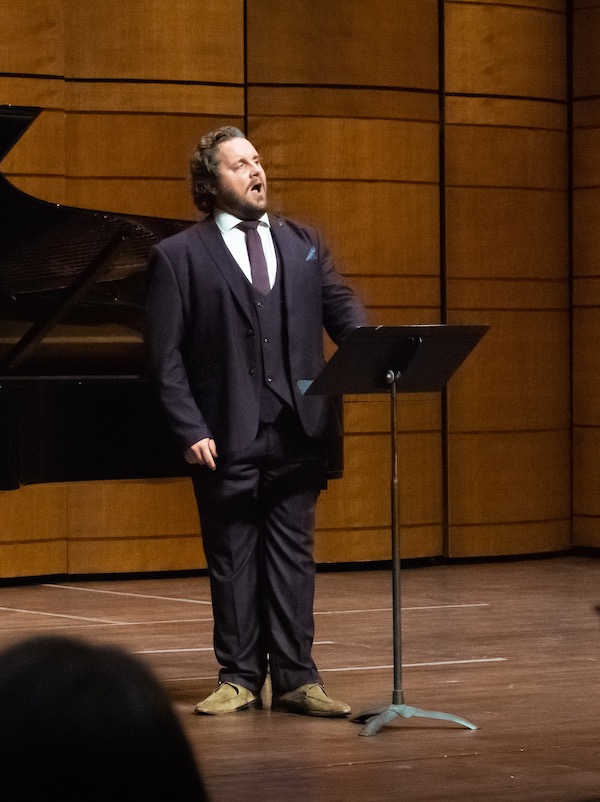
Michael Spyres. Photo: Courtney Ruckman
10. Music of Berlioz, Beethoven and Liszt. Michael Spyres and Mathieu Pordoy. Vocal Arts DC.
The city’s pre-eminent song recital series had another fine year. Its fall concert with “baritenor” Michael Spyres proved a highlight. He offered a preview of his interpretation of Berlioz’s Les nuits d’été, sung in the original keys, to be released in an orchestral recording next week. He was equally impressive in Beethoven’s An die ferne Geliebte and Liszt’s blockbuster set Tre sonetti del Petrarca, concluding with a glimpse of his Metropolitan Opera turn in Mozart’s Idomeneo.
Best Debut
Conductor Karina Canellakis made a sparkling first appearance with the National Symphony Orchestra in November. She led an extraordinary rendition of Bartók’s Concerto for Orchestra, as well as a fine Ravel Concerto for the Left Hand with Cédric Tiberghien as soloist. The much-missed French pianist also offered an incredibly deft, nuanced encore of “Oiseaux tristes” from Ravel’s Miroirs.
Biggest Debacle
In April Joyce DiDonato brought her latest art song recital dressed up as a significant dramatic event. The collaboration with the early music ensemble Il Pomo d’Oro and conductor Maxim Emelyanychev was generally top-notch, in spite of the pious attempt to make the program about ecology and climate change, including handing out little packets of cultivated wildflower seeds. Toward the end a partial power outage knocked out the sound system, kicking on some emergency lights, and activating occasional alarms outside the hall, an unintended complement to the light towers and fog machine that were part of the show, à la Lady Gaga.
Best New Work
In May Louis Langrée led the National Symphony Orchestra and soloist Alisa Weilerstein in the world premiere of A New Day, a major new cello concerto by Joan Tower. The 83-year-old composer dedicated the work to her partner of 48 years, Jeff, with four movements depicting their days together. Tower’s command of the orchestra is unparalleled among American composers, now that Christopher Rouse has left us. The lush Ravelian harmony in the first movement of the piece, co-commissioned by NSO and premiered elsewhere in 2021, made it fit perfectly with the program of Debussy and Ravel.
Worst New Work
In the same month as the Tower work, the NSO also gave the local premiere of a colossal dud, the Philharmonia Fantastique of Mason Bates. Co-commissioned by the Chicago Symphony Orchestra, Dallas Symphony Orchestra, NSO, Pittsburgh Symphony Orchestra, San Francisco Symphony, and the American Youth Symphony, it is the soundtrack to an animated film, in which a colorful character called the Sprite introduces children to the instruments of the orchestra. Unlike similar educational works by Prokofiev and Britten, it has little musically to recommend it sans video.
Best Orchestral Visit
In October, Mirga Gražinytė-Tyla took a valedictory tour with the City of Birmingham Symphony Orchestra, from which she stepped down as music director at the end of last season. Presented by Washington Performing Arts at Strathmore, the real star of the evening was a mind-blowing rendition of the new The Exterminating Angel Symphony, arranged by Thomas Adès from his wild opera based on the surrealist film by Luis Buñuel. The snare drum-fueled third movement and the horrifying waltz last movement blew the top of my brain off.
Best Recital
Also in October, WPA presented pianist Igor Levit in a cerebral program that ended with the astounding pairing of an arrangement of the Act I Prelude of Wagner’s Tristan und Isolde and Liszt’s Piano Sonata in B Minor. Levit elided the two pieces, making the last measure of the Wagner the first measure of the Liszt, drawing attention to the fact that those two measures in different works are identical, two low G octaves in 6/8 meter.
Best Local Arrival
Over the summer the Baltimore Symphony Orchestra cut short ongoing speculation about its new music director by appointing Jonathon Heyward to the post in a surprise move. The 29-year-old conductor from South Carolina will take the reins at the start of the 2023-2024 season, becoming the first African-American to lead the BSO in its 106-year history. James Conlon will remain as BSO artistic adviser until Heyward’s tenure begins.
Worst Local Departures
Two resignations, both disappointing, seemed to come out of nowhere this year. Julie Kent, who had helped reinvigorate Washington Ballet as artistic director and stabilize the company through the pandemic, announced she will leave at the end of the 2022-2023 season to take the same position with the Houston Ballet. In other bad news, Scott Tucker stepped down from a successful tenure at Choral Arts Society after leading a night of elegiac Brahms in June.
Sugar Plum Award
The highly coveted award for this year’s best holiday concert goes to a program of carols from medieval and renaissance England, sung by ModernMedieval Voices at Dumbarton Oaks. Jacqueline Horner-Kwiatek, formerly of Anonymous 4, founded this trio of women’s voices a few years ago, and its austere program of chant and simple polyphony radiated warmth.
Lux Aeterna Luceat Eis
The classical music world lost a number of esteemed names in 2022, including mezzo-soprano Teresa Berganza and tenor John Aler; conductors Simon Preston and Bramwell Tovey; Roger Tapping, former violist of the Takács Quartet; early music specialists René Clemencic, Alice Harnoncourt, and Marie Leonhardt; pianists Radu Lupu, Nicholas Angelich, Lars Vogt, and Joseph Kalichstein; critic Terry Teachout and redoubtable musicologist Richard Taruskin; theater director Peter Brook; and composers George Crumb, Martin How, Philippe Boesmans, Harrison Birtwistle, Angelo Badalamenti, Vangelis, and Ned Rorem.



